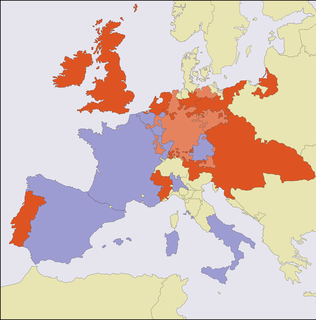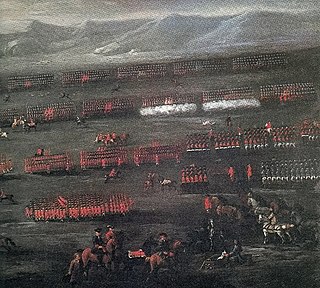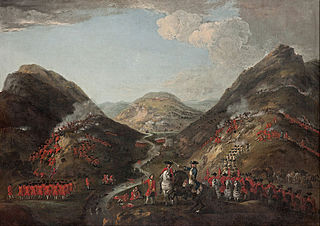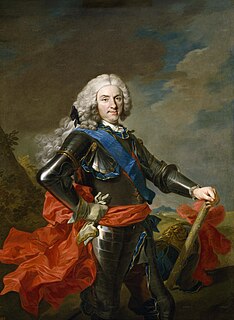| |||||
| Decades: | |||||
|---|---|---|---|---|---|
| See also: | Other events of 1701 History of France • Timeline • Years | ||||
Events from the year 1701 in France .
| |||||
| Decades: | |||||
|---|---|---|---|---|---|
| See also: | Other events of 1701 History of France • Timeline • Years | ||||
Events from the year 1701 in France .

The War of the Spanish Succession, fought from July 1701 to September 1714, and triggered by the death in November 1700 of Charles II of Spain, was the struggle for control of the Spanish Empire between his heirs, Philip of Anjou and Archduke Charles of Austria. The conflict drew in many European powers, including Spain, Austria, France, the Dutch Republic, Savoy and Great Britain. Related conflicts include the 1700–1721 Great Northern War, Rákóczi's War of Independence in Hungary, the Camisards revolt in southern France, Queen Anne's War in North America and minor trade wars in India and South America.

The 1700s decade ran from January 1, 1700, to December 31, 1709.

1703 (MDCCIII) was a common year starting on Monday of the Gregorian calendar and a common year starting on Friday of the Julian calendar, the 1703rd year of the Common Era (CE) and Anno Domini (AD) designations, the 703rd year of the 2nd millennium, the 3rd year of the 18th century, and the 4th year of the 1700s decade. As of the start of 1703, the Gregorian calendar was 11 days ahead of the Julian calendar, which remained in localized use until 1923.
The 1630s was a decade that began on January 1, 1630, and ended on December 31, 1639.
The 1710s decade ran from January 1, 1710 to December 31, 1719.

1665 (MDCLXV) was a common year starting on Thursday of the Gregorian calendar and a common year starting on Sunday of the Julian calendar, the 1665th year of the Common Era (CE) and Anno Domini (AD) designations, the 665th year of the 2nd millennium, the 65th year of the 17th century, and the 6th year of the 1660s decade. As of the start of 1665, the Gregorian calendar was 10 days ahead of the Julian calendar, which remained in localized use until 1923.

1638 (MDCXXXVIII) was a common year starting on Friday of the Gregorian calendar and a common year starting on Monday of the Julian calendar, the 1638th year of the Common Era (CE) and Anno Domini (AD) designations, the 638th year of the 2nd millennium, the 38th year of the 17th century, and the 9th year of the 1630s decade. As of the start of 1638, the Gregorian calendar was 10 days ahead of the Julian calendar, which remained in localized use until 1923.

1715 (MDCCXV) was a common year starting on Tuesday of the Gregorian calendar and a common year starting on Saturday of the Julian calendar, the 1715th year of the Common Era (CE) and Anno Domini (AD) designations, the 715th year of the 2nd millennium, the 15th year of the 18th century, and the 6th year of the 1710s decade. As of the start of 1715, the Gregorian calendar was 11 days ahead of the Julian calendar, which remained in localized use until 1923.

1719 (MDCCXIX) was a common year starting on Sunday of the Gregorian calendar and a common year starting on Thursday of the Julian calendar, the 1719th year of the Common Era (CE) and Anno Domini (AD) designations, the 719th year of the 2nd millennium, the 19th year of the 18th century, and the 10th and last year of the 1710s decade. As of the start of 1719, the Gregorian calendar was 11 days ahead of the Julian calendar, which remained in localized use until 1923.
1704 (MDCCIV) was a leap year starting on Tuesday of the Gregorian calendar and a leap year starting on Saturday of the Julian calendar, the 1704th year of the Common Era (CE) and Anno Domini (AD) designations, the 704th year of the 2nd millennium, the 4th year of the 18th century, and the 5th year of the 1700s decade. As of the start of 1704, the Gregorian calendar was 11 days ahead of the Julian calendar, which remained in localized use until 1923.

1701 (MDCCI) was a common year starting on Saturday of the Gregorian calendar and a common year starting on Wednesday of the Julian calendar, the 1701st year of the Common Era (CE) and Anno Domini (AD) designations, the 701st year of the 2nd millennium, the 1st year of the 18th century, and the 2nd year of the 1700s decade. As of the start of 1701, the Gregorian calendar was 11 days ahead of the Julian calendar, which remained in localized use until 1923.

1700 (MDCC) was an exceptional common year starting on Friday of the Gregorian calendar and a leap year starting on Monday of the Julian calendar, the 1700th year of the Common Era (CE) and Anno Domini (AD) designations, the 700th year of the 2nd millennium, the 100th and last year of the 17th century, and the 1st year of the 1700s decade. As of the start of 1700, the Gregorian calendar was 10 days ahead of the Julian calendar, which remained in localized use until 1923.

1696 (MDCXCVI) was a leap year starting on Sunday of the Gregorian calendar and a leap year starting on Wednesday of the Julian calendar, the 1696th year of the Common Era (CE) and Anno Domini (AD) designations, the 696th year of the 2nd millennium, the 96th year of the 17th century, and the 7th year of the 1690s decade. As of the start of 1696, the Gregorian calendar was 10 days ahead of the Julian calendar, which remained in localized use until 1923.

Philip V was King of Spain from 1 November 1700 to 14 January 1724, and again from 6 September 1724 to his death in 1746. His total reign of 45 years is the second longest in the history of the Spanish monarchy. Philip instigated many important reforms in Spain, most especially the centralization of power of the monarchy and the suppression of regional privileges, via the Nueva Planta decrees, and restructuring of the administration of the Spanish Empire on the Iberian peninsula and its overseas regions.
Events from the year 1699 in France.
Events from the year 1710 in France.
Events from the year 1674 in France.
Events from the year 1659 in France.
Events from the year 1711 in France
Events from the year 1657 in France